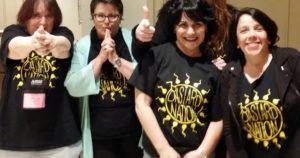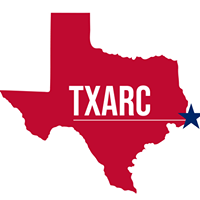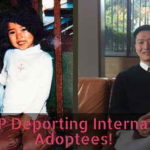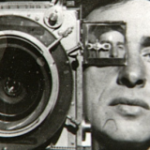Published Sunday, December 6, 1998, in the San Jose Mercury News
Adoptees seek state’s help to ease their hunt
Open-records law urged
BY STEVE JOHNSON
Mercury News Staff Writer
She was adopted 22 years ago when she was just 4, but painful memories linger for Robin Schuettke.
The man who was raising her told her he no longer loved her. He told her to forget him. Was that man her father?
Schuettke has never been able to find out because California — like many states — makes it difficult for adoptees to get at their original birth certificates.
Now, advocates buoyed by recent victories in Tennessee, Delaware and Oregon are pushing to unseal adoption records in more states. And they hope California will be among the next battlegrounds for the rights of adoptees like Schuettke, of San Jose.
“I don’t see why they think they have the right to deny us information on who we are,” said Schuettke, who spent several fruitless years searching for her mother’s and father’s identities. “If I could get those records, it might answer a lot of questions.”
But the desire of many adoptees to understand who and where they come from collides head-on with what many others argue is the right of birth parents to maintain their anonymity.
Those who criticize the growing campaign to pry open adoption documents are especially upset over Measure 58, a highly publicized initiative approved by Oregon voters Nov. 3 by a ratio of 57 percent to 43 percent.
It not only gives adoptees 21 and older the right to see their original birth certificates, it also is the first time adoption advocates have been able to pass such a measure by going directly to voters.
Other advocates disagree
William Pierce, president of the National Council For Adoption, an advocacy and research organization in Washington, D.C., said he fears such open-record policies could prompt some mothers to have abortions instead of put babies up for adoption. Moreover, he said, many other parents who had never revealed to their families and friends that they’d had children could find their secret exposed and become possible targets of ridicule.
“It’s devastating,” Pierce said of the Oregon measure. “If it goes into effect, it’s going to hurt lots and lots of people.”
Opponents are determined to prevent that. Four unnamed Oregon birth mothers have filed suit, claiming the initiative is unconstitutional because, they say, it would violate their right to privacy and undermine their contract with the state, which had guaranteed them confidentiality. A judge on Thursday put the law on hold pending resolution of the lawsuit.
If the initiative ultimately is allowed to go into effect, adoption activists say it could lead to attempts soon by initiative or legislation to unseal records in such places as California, Washington, Nevada, Montana and Arizona.
Demonstrating their support
To press their case, open-record backers held demonstrations Thursday at government offices in San Jose, San Francisco and other cities in a symbolic demand for access to their own birth certificates.
“It’s a dignity issue,” said Denise Castellucci, a 32-year-old adoptee who grew up in Menlo Park and who was heavily involved in getting the Oregon measure passed. “By denying me my original birth certificate, there’s an underlying assumption that I can’t be trusted.”
At least 5 million people in this country are adopted and the push to open up their birth certificates or other adoption-related records has slowly been gaining momentum for years. Joan Hollinger, a visiting law professor with the University of California-Berkeley and a national expert on adoption law, attributes the push largely to efforts by various minority groups to demand their civil rights and to the popularity of Alex Haley’s TV miniseries, “Roots.”
“We are a country that is very much interested in origins and family history,” Hollinger said. “People expect others to have a story about where they came from and what their families are like.”
While states have widely divergent rules about adoption records, many adoptees still manage to find their birth parents. Some do it with the assistance of various non-profit groups, many of which have Internet sites and databases. That’s how Ron Morgan, 44, an official with the adoptee group Bastard Nation in San Francisco, eventually identified his parents.
Until eight years ago, Morgan had assumed that the two adults who raised him were his birth parents. But after they died, he was shocked to find a reference to his adoption in papers he ran across while cleaning out their personal effects. Morgan, who grew up an only child, has since discovered he has “12 sisters and brothers scattered up and down the West Coast.”
Why they search
Many adoptees want to find their biological parents because they want to know if they are at risk for any inherited medical conditions. Others have more abstract reasons. When 59-year-old Doreen Alegrete of San Jose, who heads an adoptee-help agency called Search-Finders of California Inc., found her birth mom 15 years ago, she said, “I just wanted her to hold me — put her arms around me and hold me.”
Schuettke, who has a 1-year-old daughter, has managed to piece together some information about her past, such as the fact that she was born in Petaluma. But other details are vague, including the identify of the man she had lived with before her adoption as well as the name of her mother.
She realizes that finding out more could be “like opening up a can of worms,” as she put it. But deep down, she would love to know who her birth parents were, what they looked like and if they are still alive.
“I think I’ve always had this thing,” she said, “Did I pass them on the street and I never knew it? Could I have walked on by them and not known them? . . . It’s kind of awful to have information about yourself that you can never know.”


 New York Adoptee Rights Coalition
New York Adoptee Rights Coalition











